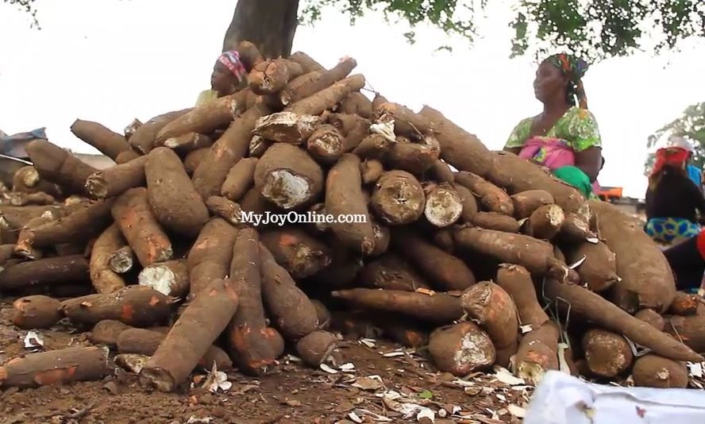Chief Executive Officers (CEO) of Ayensu Starch Company Limited, Evans Ayim, has urged farmers to adopt new methods in the production of cassava.
He said scientists had developed improved cassava seeds and farming practices to enhance yield and ensure economic viability and encouraged farmers to take advantage of the Innovation.
Mr Ayim made the appeal at the maiden Cassava Week Celebration organised by the Biotechnology and Nuclear Agriculture Research Institute (BNARI) of the Ghana Atomic Energy Commission (GAEC).
It was under the theme: "Ghana's Golden Root for Economic Transformation".
Mr Ayim said: "Farming has moved on, today practices have advanced; these days they talk about precision agriculture. Farmers just do not go to the field and plant, instead they have to check the fertility of the soil and the exact nutrients that the soil needs, before planting, " he said.
He stated that the application of new technologies in cassava production would go a long way to stimulate economic growth and create employment opportunities for the youth.
"Globally, the starch industry for instance is worth over 97 billion US Dollars and Ghana's economy stands to benefit greatly if steps are taken to industrialise cassava," he said.
The Chief Executive Officer commended the government for supporting cassava processing factories, including the Amantin Agro processing, Caltech ventures and Twin Rock Company Limited, under the one district one factory policy.
He noted that a major problem in the cassava industry was how researchers had failed to transmit knowledge and skills to farmers, most especially in rural areas.
Mr Ayim commneded BNARI and its partners on championing the initiative, which he said sought to build a better industry to transform the livelihoods of actors in the cassava value chain.
Dr. Michael Osae, Director of Biotechnology and Nuclear Agriculture Research Institute, noted that harnessing the potential in the cassava industry could transform the economy of the country.
"Every part of the cassava crop is useful, even the peel. In South Africa, people use cassava peels in producing cement. There is a lot that can be achieved with cassava, aside from it being a staple food," he added.
Dr Osae said the Institute through the support of International Atomic Agency and other key players had funded them to develop varieties of cassava especially one that had high starch and carotenoids most needed by industries.
He urged farmers to adopt science, technology and innovation in farming, which the BNARI was working towards to get everyone involved to boost Ghana's yield in agriculture.
The Ghana Atomic Energy Commission is currently working with some farmer-based organisations and Non-Governmental Organisations to establish demonstration farms, which would transfer technologies on climate crop varieties to improve productivity in the cassava system.
Latest Stories
-
Banks must rethink relationship management through customer experience
2 hours -
Government assures mining sector of stable power supply
2 hours -
Cedi appreciation: Minority urges government to ensure relief for Ghanaians
2 hours -
GSS study finds higher bribery rates among men in Ghana
2 hours -
Early return to capital market will be costly for Ghana – Prof Quartey
2 hours -
Koku Anyidoho praises Mahama for renaming UHAS after late President Atta Mills
2 hours -
GRA urges businesses to embrace proper recordkeeping and timely tax filing
2 hours -
Fidelity Bank is committed to climate resilience as a core business imperative – Atta Gyan
2 hours -
Wontumi’s arrest: Justice isn’t only for allies – Joyce Bawah slams Bawumia
2 hours -
Ghana’s embassy in Washington reopens following IT overhaul and staff restructuring
2 hours -
Parliament must rise above pettiness, prioritise national interest – Bagbin
2 hours -
Mahama engages businesses on government’s 24-hour economy policy
2 hours -
Debunking credit card myths in Ghana
4 hours -
Fire devour parts of Maaha Beach Resort in Western Region
4 hours -
No dividend for ETI shareholders as Board focuses on servicing debts, strengthening balance sheet
4 hours

